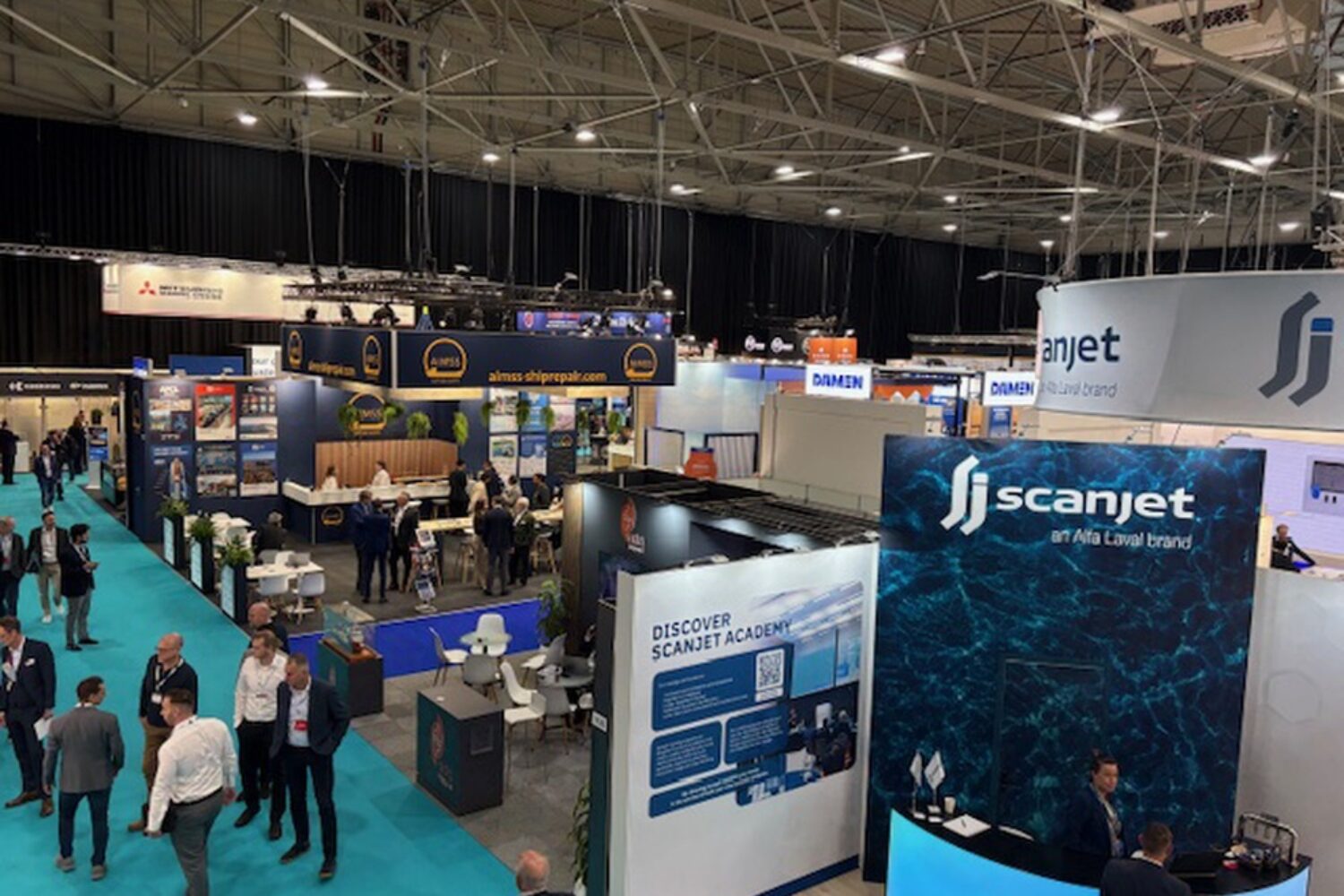The maritime industry met at Europort 2025 in Rotterdam last week: Over 23,000 visitors from 87 countries took part in the trade fair. The organizers have already announced a new date for 2027.
Topics included an accelerated energy transition, the growing demands of digitalization, economic uncertainty and the competition for skilled workers.
The 42nd edition of the trade fair offered four intensive days of conferences, networking events, award ceremonies and discussion forums. With more than 23,000 visitors from 87 countries, around 1,100 exhibitors and 13 national pavilions, the organizers reported a fully booked trade fair.
Europort kicked off on November 4 with the Opening Summit. In her keynote speech, Marja van Bijsterveldt, special envoy for the Dutch maritime industry, highlighted parallels between the social upheavals of the 1920s and the present day. The focus was on the appeal to develop creative solutions for the current transformation processes.
Among the new products on display, Damen presented the new “Combi Freighter CF-5000 ICE” series, a scalable series of ice-class cargo ships. Another focus was on the topic of the circular economy. The “Circular Route”, presented for the first time with 15 companies, showed concrete approaches to the reuse and recycling of materials and components.
“Circularity is not only ecologically sensible,” said Marjolein Boer, founder of Maritime Sisters and co-initiator of the route. “It strengthens strategic autonomy, reduces costs, creates new business models and makes our industry more sustainable.”
Despite the recent delay in the IMO Net Zero framework, decarbonization remained a central part of the discussions. New guidelines for risk analysis of alternative fuels were presented at the Maritime Technology Forum. The aim is a practical approach that takes equal account of safety and climate targets.
Cooperation was also a recurring theme throughout the event. During his tour, Dutch Managing Minister of Transport Robert Tieman emphasized the importance of international networking and supportive framework conditions: “We must keep our goals in mind, but at the same time ensure that regulation enables rather than hinders innovation.”
Petra de Groene, Program Manager for Economy, Climate, Port and Network Congestion in the City of Rotterdam, pointed out the central role of the location: “Rotterdam is a hub for maritime innovation. Europort offers an important framework for bringing together companies, research and urban society.”
On the final day, the focus was on promoting young talent with the #YoungEuroport formats. Students and young professionals were given the opportunity to network, present ideas and find out about career paths.
“This year, Europort stood for energy and international solidarity,” explained Raymond Siliakus, Europort Director at Rotterdam Ahoy. “Especially in times of geopolitical tensions, it is encouraging to see how the industry puts solution orientation before conflict. Cooperation remains the key to progress.” The next Europort will take place in Rotterdam from November 2 to 5, 2027.
The next Europort will once again take place in Rotterdam from November 2 to 5, 2027. (jwy)













